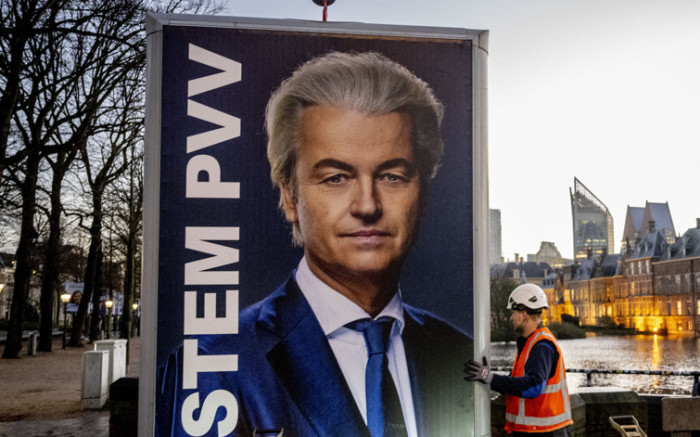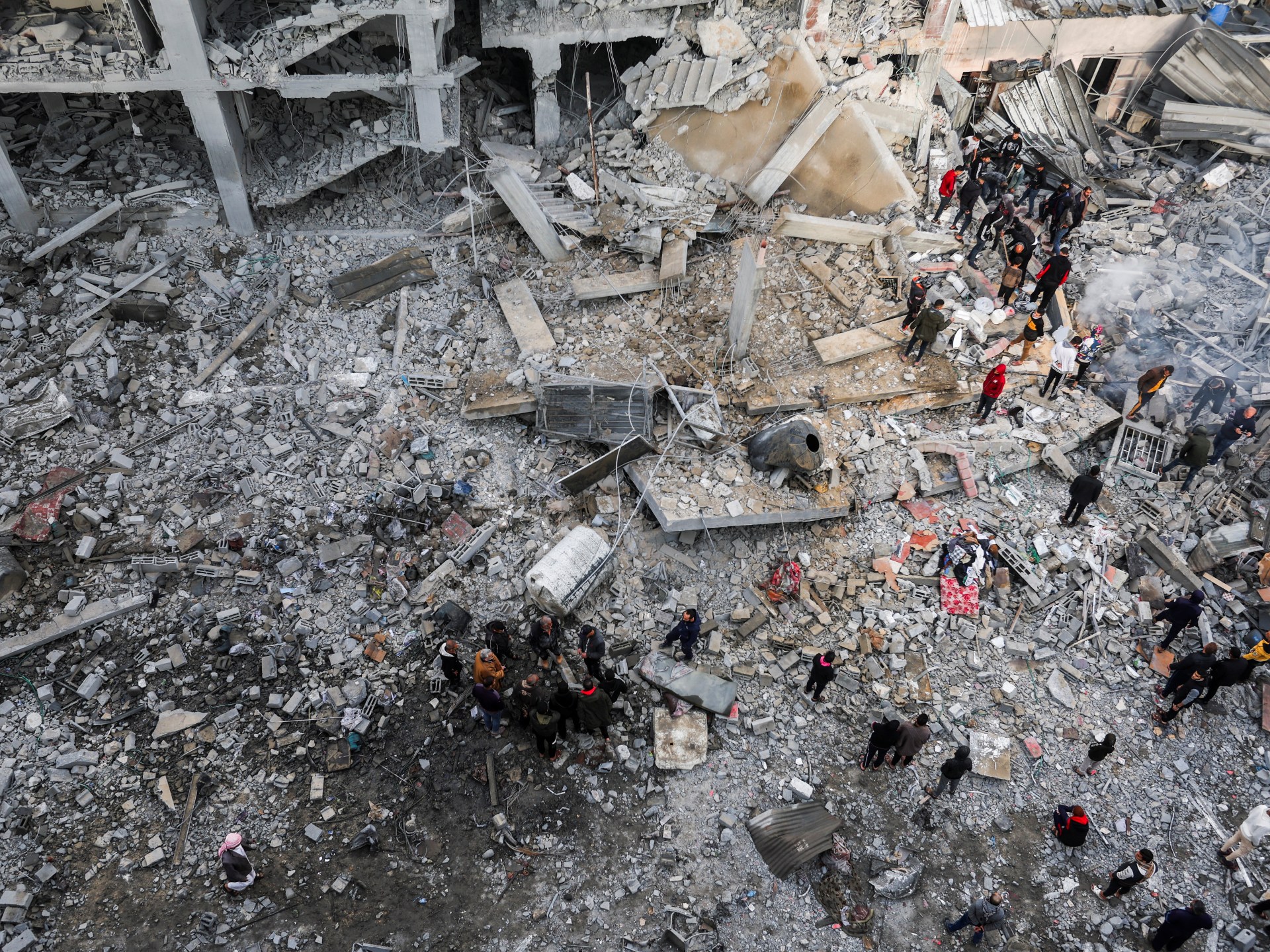
All eyes are now on whether Wilders can form a governing coalition and become the country’s first far-right prime minister – and early arguments suggest he is finding it difficult.
Workers prepare to remove an election sign of the Party for Freedom (PVV) leader Geert Wilders near the Binnenhof, a day after the Dutch general election in The Hague on November 23, 2023. Image: AFP
THE HAGUE, NETHERLANDS – Geert Wilders’ stunning election victory was officially confirmed on Friday, but the far-right Dutch leader faces an uphill battle to form a coalition with other parties uncomfortable with his Islamophobic views.
The election committee said Wilders and his Freedom Party, PVV, won 37 seats in the 150-seat parliament, an unexpected boost for the far-right that sent shockwaves across Europe and beyond.
All eyes are now on whether Wilders can form a governing coalition and become the country’s first far-right prime minister – and early arguments suggest he is finding it difficult.
In the highly fragmented Dutch political system, where no party is strong enough to govern alone, the elections are followed by months of horse-trading to agree a coalition.
Wilders wants a four-party coalition with the center-right VVD party – Prime Minister Mark Rutte’s current ruling party – the reform-friendly New Social Contract and the farmers’ party BBB.
He needs 76 seats for a stable coalition and the State Council confirmed that the four parties together would easily achieve this.
The BBB Farmers Party, which emerged from protests against plans to cut nitrogen emissions to win the upper house election in March, appears to be on board and has won its seven seats.
But Wilders cannot form a majority without anti-corruption advocate Pieter Omtzigt’s VVD and NSC, and both have refused to enter negotiations for now.
“Come to the table”
The VVD, led by the charismatic Turkish-born Dilan Yesilgoz, had a disastrous election night, winning just 24 seats – a decline from 34 previously.
Yesilgoz stated firmly that her party would not join a coalition led by Wilders, arguing that voters had made it clear that the VVD should no longer govern.
However, she wants to “support” a center-right coalition, opening up the possibility of voting with Wilders on passing laws that the VVD agrees with.
Omtzigt was seen as a more natural partner for Wilders, but he too delivered a devastating blow at the start of talks, saying he feared commitments in the PVV manifesto would violate the constitution.
The PVV election program calls for a ban on mosques, the Koran and headscarves. She is also calling for a referendum on a “Nexit” – the idea of the Netherlands leaving the European Union.
The party also wants to stop arms sales to Ukraine and says the Dutch should stop being “afraid” of climate change as the low-lying country has “the best water engineers in the world”.
Wilders toned down much of his more extreme language during the campaign, focusing on the cost of living and reducing immigration – policies shared by all right-wing parties.
But Omtzigt said the PVV manifesto “contains views that we believe violate the constitution…here we are drawing a hard line.”
“All in all, the NSC faction currently sees no basis for starting talks with the PVV about a majority or minority government,” he said in a letter to the “scout” responsible for leading the talks.
A furious Wilders accused Omtzigt of playing “petty political games” and called on him to start formal coalition talks.
“If you have any questions, Pieter, come to the table. Then I will try to answer you nicely,” Wilders said on X, formerly Twitter.






Recent Comments